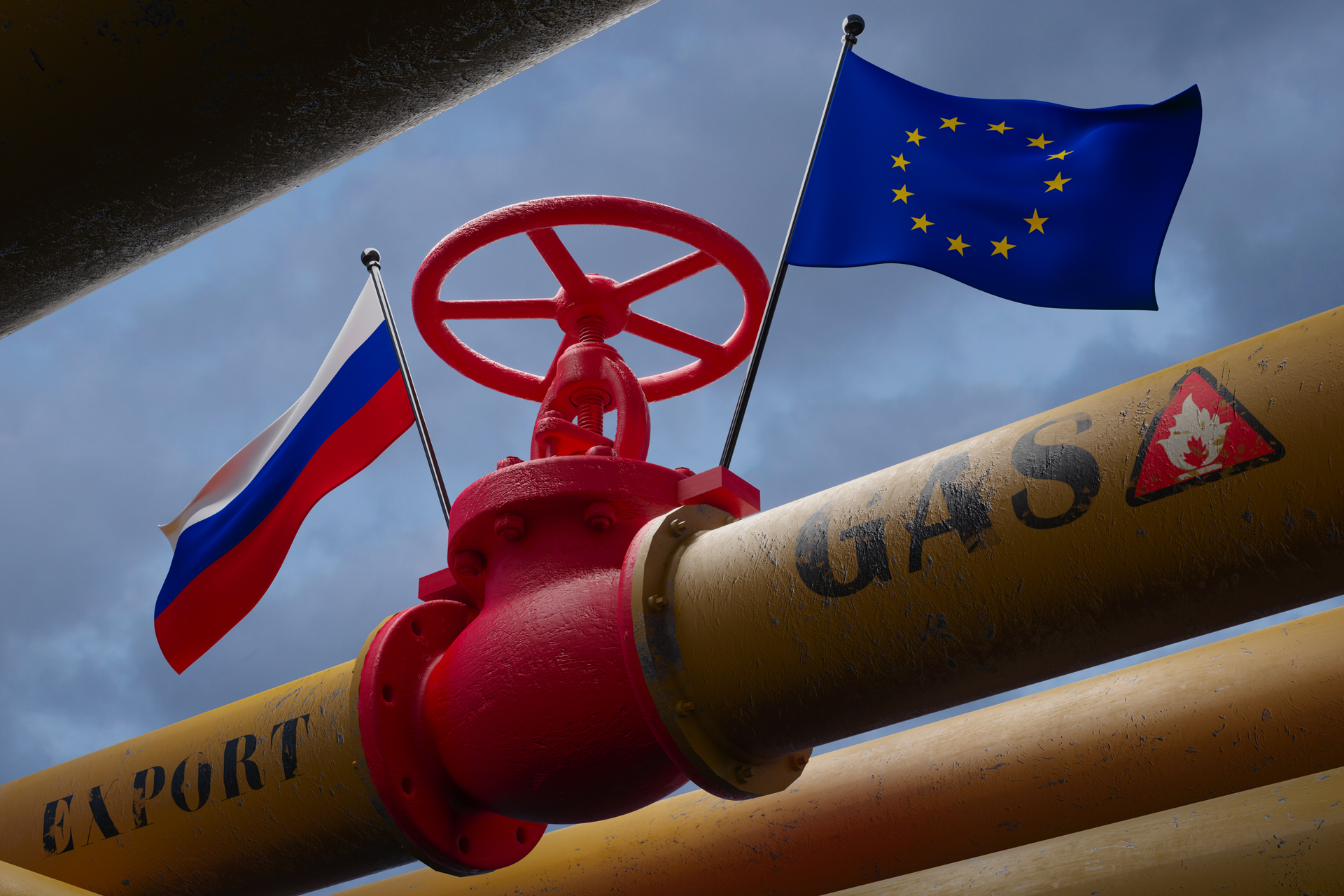The 27 countries of the European Union have adopted a mechanism to set a ceiling for gas prices in the bloc, but the effects of this decision on the energy bill for companies and individuals will be limited, according to what was reported by the French Press Agency.
These experts expressed their fear of negative repercussions on the ability of Europeans to supply gas in the coming winter.
What is the strength of this mechanism?
According to a report by Agence France-Presse, gas is bought and sold on exchange platforms at wholesale prices through intermediaries and sometimes directly from industrialists.
On Wednesday, wholesale contracts for gas (delivery next month) were exchanged at 99.35 euros per megawatt-hour in the euro market for the reference “TTF” index, which is like the “gas exchange” in the Netherlands and its prices are a reference for exchanges in Europe.
These prices rose in August to 345 euros for a short time.
The European ceiling is activated in two cases:
When this price for the monthly contract exceeds 180 € per megawatt hour during 3 consecutive days.
If it is €35 higher than the international price of LNG delivered by ship.
The "protective mechanism" is not resorted to unless natural gas prices on the European continent exceed those of liquefied natural gas, and the roofing mechanism remains in place at the time of its operation for a period of 20 days.
It is automatically invalidated if the price falls for 3 consecutive days below 180 euros or an emergency is declared for EU supplies.
Will the energy bill decrease for individuals and companies?
The mechanism relies on a double restriction of very high prices (180 euros per megawatt-hour) that may only happen in rare cases, and therefore "the final effect is very uncertain," according to Simone Tagliapietra of the Bruegel Institute.
And in the event that tensions prevail over the global gas supply, especially in the face of increasing demand from China, “every supply problem, cold wave and insufficient decrease in European demand may lead to the availability of the necessary conditions for activating the mechanism,” according to Katia Yafimava of the “Oxford Energy” Institute.
However, in any case, this ceiling aims to avoid extreme fluctuations and not to reduce energy prices in general, and what is ultimately required is to avoid the record levels recorded in 2022.
For his part, Thierry Bruce, an analyst specializing in oil and gas affairs, confirms that "there is no impact at all on individuals (and) the impact is very small on industrialists."
"There is no necessarily direct relationship between the wholesale price and the price paid for electricity or gas," he says. "(Governments) intervened 18 months ago and spent 700 billion euros to limit price increases and avoid repercussions" on the consumer.
The effects of reducing the wholesale price are limited to the limited number of industrialists who buy directly from the wholesale market, according to experts.
Any repercussions for next winter?
Simone Tagliapietra believes that "the main danger lies in undermining the mechanism for the possibility of securing supplies (and filling gas stocks during the year 2023). But in this case, the system is simply nullified."
The biggest risk is that consensual deals take place outside regulated markets to avoid capping, which makes exchanges "less transparent" and more risky for financial stability, according to Tagliapietra.
As for Thierry Bruce, he is more pessimistic, saying, "The matter will have negative repercussions ... Supplies are usually guaranteed at high prices, and low prices do not guarantee anything."
The problem, in his view, lies in creating a precedent for intervention in the market, and he adds, "Some operators may see that politics can now intervene at any moment."
Norway - a major supplier to the European Union - does not hide its concern in this regard.
Taliapietra believes that "negotiating with them by mutual consent gives better results than setting a price ceiling."
Any solutions in light of the energy crisis?
Thierry Brosse believes it would have been desirable for the EU to decouple the price of gas from electricity, as a way to decarbonize the system and lower prices.
Meanwhile, Simone Tagliapietra says that this crisis will not be resolved except by maximizing alternative supplies of Russian gas, including renewable energy sources, and reducing demand, considering that this is the only way to radically reduce energy prices.
It is noteworthy that Russia considered the European Union's decision to set a ceiling for gas prices as an attack on the mechanism for determining the market price, and Kremlin spokesman Dmitry Peskov said the day after the decision was issued that it was "unacceptable."

